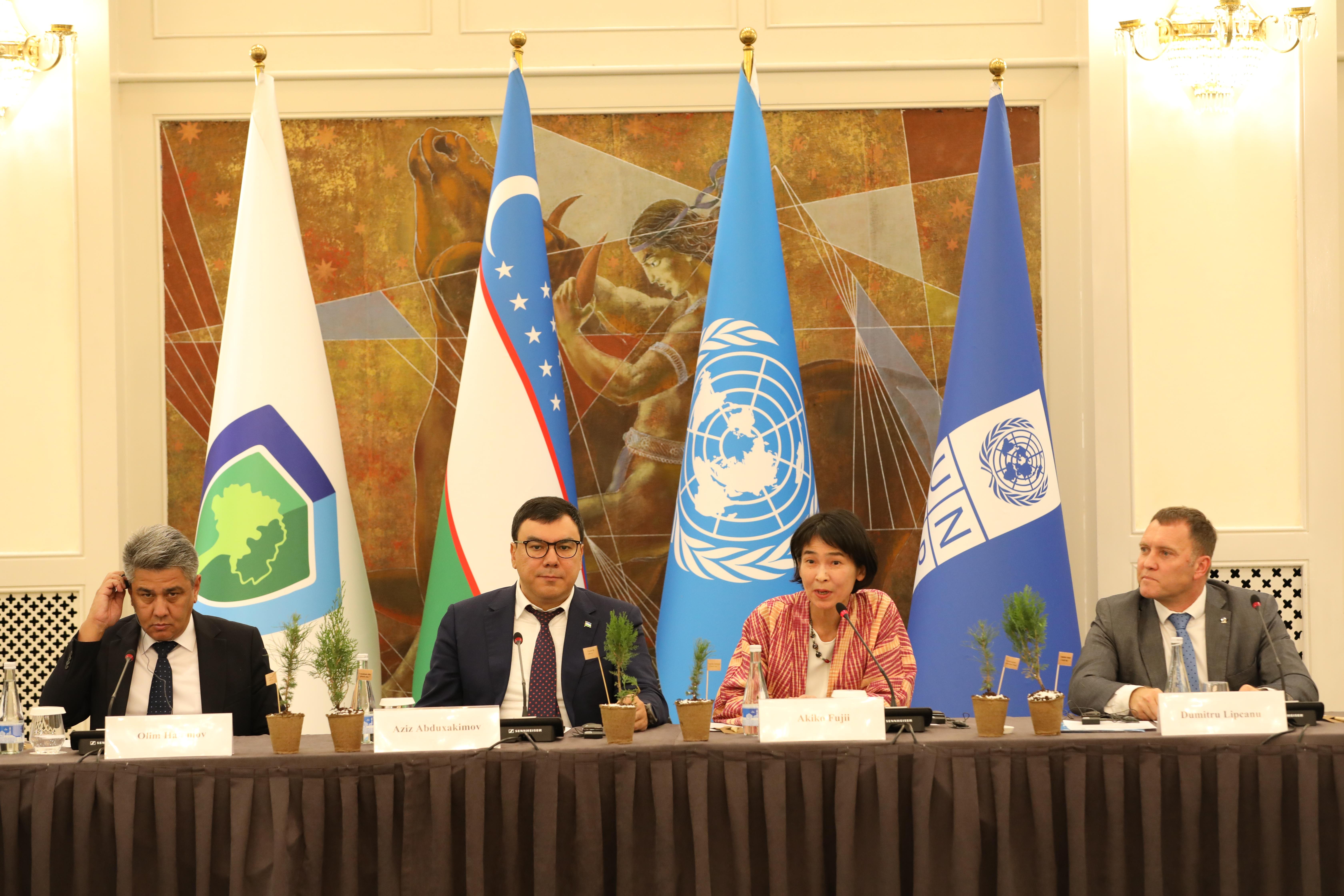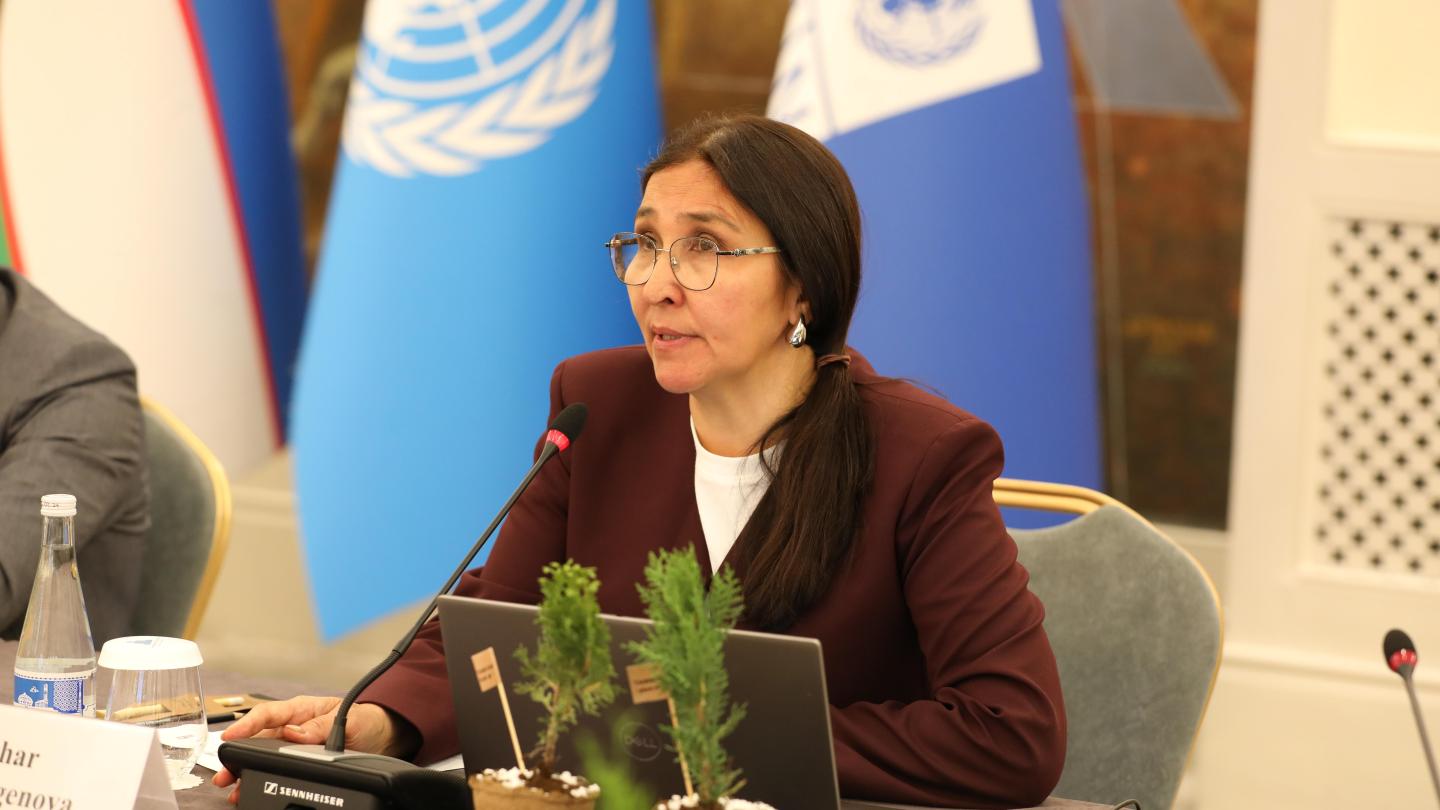
Photo: UNDP Uzbekistan
Tashkent, September 11, 2024 —Today the Ministry of Ecology, Environmental Protection, and Climate Change of the Republic of Uzbekistan, in collaboration with the United Nations Development Programme (UNDP), the United Nations Economic Commission for Europe (UNECE), and the United Nations Refugee Agency (UNHCR) joined forces to launch a new joint project on Master Planning and Innovative Financial Solutions to Support the Implementation of the Yashil Makon Initiative.
The event gathered key stakeholders to discuss the strategic direction and anticipated outcomes of the project, which aims to foster sustainable development through the "Yashil Makon" initiative, launched by the government of Uzbekistan. This initiative seeks to transform the country’s environment using ecological and social approaches. The project focuses on developing a comprehensive master plan for "Yashil Makon," introducing innovative financial solutions, and creating new income sources for vulnerable communities and forcibly displaced people in the Surkhandarya region.

Photo: UNDP Uzbekistan
During the event, participants were briefed on the project’s goals, core components, and implementation timeline. The discussions underscored the importance of strengthening cooperation between the Government of Uzbekistan, UNDP, UNECE, UNHCR, and other critical partners, laying the groundwork for future collaboration. The participants also outlined the next phases of the project, and presented a clear roadmap with defined milestones and expected outcomes.

Photo: UNDP Uzbekistan
“The 'Yashil Makon' initiative is more than just a greening project; it is a crucial step towards building a sustainable future for everyone in Uzbekistan. We are proud to have the financial support of international partners such as UNDP, UNECE, and UNHCR in implementing this significant initiative, which will positively impact both the ecology and economy of our country,”said Mr. Aziz Abduhakimov, Minister of Ecology, Environmental Protection, and Climate Change of the Republic of Uzbekistan.

Photo: UNDP Uzbekistan
Ms. Akiko Fujii, UNDP Resident Representative in Uzbekistan, highlighted the importance of partnerships in achieving sustainable results:
“By restoring degraded lands through afforestation efforts at a scale, we not only revive ecosystems but also create sustainable livelihoods for local communities. This initiative is a pathway to both environmental resilience and poverty reduction, empowering people with the tools they need to thrive.”

Photo: UNDP Uzbekistan
“Environmental management is a priority in all phases of the UN programming. We seek to contribute to environmental conservation and sustainable natural resource management globally and Uzbekistan is an example. This project enhances the self-reliance and economic inclusion of displaced persons and marks their contributions to host communities in mitigating effects of climate change”,mentioned Dumitru Lipcanu, UNHCR Acting Representative for Central Asia.
The project will use innovative approaches to ensure the project's long-term sustainability and streamlining with "Yashil Makon" initiative. Pilot sites for afforestation in the Surkhandarya region were presented, and sites for establishing plant nurseries that will serve as the foundation for restoring green areas. The project will engage forcibly displaced and vulnerable people from the local communities in planting efforts, highlighting their contribution to climate mitigation actions. Additionally, participants explored the possibility of carbon credit trading to attract additional resources for project implementation.

 Locations
Locations









